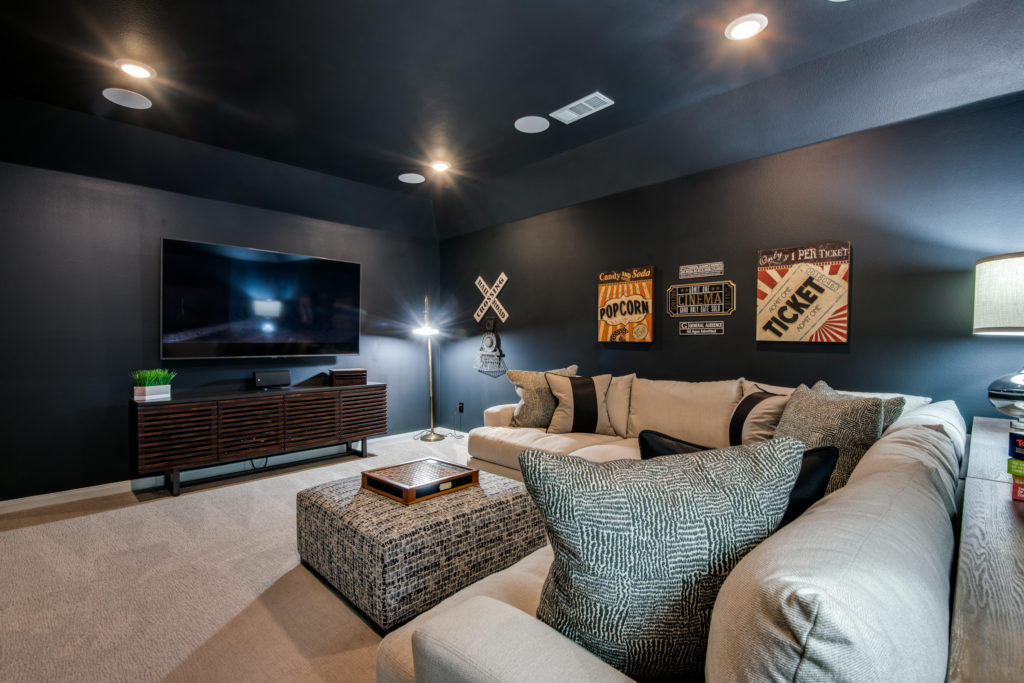Is Bigger Better? Pros and Cons of Buying a Larger Home

When buying a home, one of the most pressing questions is, “How much space do we actually need?” A dedicated guest room, an in-home office, a playroom, two living spaces — it’s difficult to evaluate exactly how many square feet will optimize your home’s function and your family’s comfort.
Normandy Homes offers smartly designed floorplans with three to four bedrooms, ranging from just under 2,000 square feet to almost 4,000 square feet. Before buying a home and evaluating what fits your lifestyle, consider these pros and cons of buying a larger home.
Pros of a Bigger Home
- Dedicated Spaces, not Dual-Use — If you work from home (which is becoming more common after a year of “covid commuting”), you may need an in-home office. If you host out-of-town guests frequently or dinner parties, a guest bedroom or dining room might be a necessity. As you house hunt, determining the intent of a flex space or spare bedroom will help you name your needs versus wants.
- Hosting and Flow — When hosting large group gatherings, a bigger house often provides plenty of space for your guests, depending on the layout of the home. Having a large family is also a determining factor in house size.
- Room Size and Storage — Bigger homes can often provide similar floorplans to houses with a smaller footprint, but with rooms more generous in size or boasting extra storage. If you desire an owner’s suite with his-and-hers closets or space for a reading nook, for example, larger homes frequently boast the needed space for these extra perks.
Cons of a Bigger Home
- Affordability and Upkeep — Beyond a larger mortgage, bigger homes mean higher utility bills, more expenses to furnish the home, and more maintenance costs. Consider all factors of a home’s costs – including upkeep and your long-term financial goals, advises experts at Moving.com. Not all costs are evident right away, so the time and financial commitments of a larger home need consideration.
- Usable Space — If having a more spacious home means rooms are going to sit empty for much of the year, then it’s wise to evaluate if you need that extra square footage. “When attending showings at larger homes, instead of just asking if you can see yourself living there, ask what exactly you’ll utilize each of those rooms for,” writes Laura Meuller. “And as a general rule, never buy more space than you can actually use.”
- Disjointed and Disconnected — The Simple Economist warns of the isolation that may result from a larger home. Game rooms, basements, and other spaces may discourage family connection as everyone heads to their own corner of the house. Consider how you want your family to interact and find a house that facilitates that well.
- Location — Sacrificing a convenient and desirable location for a larger home in a less-sought-after area may end up being a regrettable choice. Besides budget, location is a top determination in purchasing a home. Make sure you’re factoring in your commute, local schools, resale value, and lifestyle (travel accessibility, restaurants, etc.), which are all tied to location.
Like much of the country, the Dallas-Fort Worth housing market is booming and mortgage interest rates are low, which is favorable for buyers. Dallas, which is in the top 10% nationally for real estate appreciation, is predicted to be the nation’s sixth hottest housing market in 2021. DFW is a great place to invest and put down roots, and Normandy Homes has strategically built neighborhoods in some of the most sought-after communities.
As you house hunt, you may find that bigger does not always equal better. Affordability, location, and the appropriate amount of usable space for your family are all important factors when buying a home.